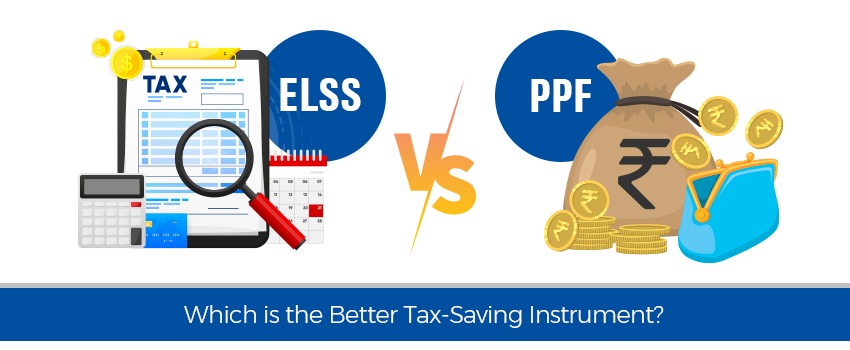One cannot reiterate enough on the importance of having Health Insurance or Mediclaim. The stressful times we live in has made the list of lifestyle diseases longer. In fact, people seem to be incurring these diseases at a far younger age than before. While the progress in medicine has proved to be a boon in treating these diseases, the treatment comes at a very high cost! This is the most important reason for having a health insurance plan – to protect you and your family from huge medical debts in case of medical emergencies. In these cases, the needed surgeries, treatments, medications and visits to specialists can easily run into five digit bills.
Health Insurance provides you the cover against the medical care costs arising from disease or accidental injuries. It is a crucial financial product that every individual must have irrespective of their age. It allows you to focus on getting the best treatment without bothering about the financial costs of the treatment.
Depending on the terms of the health insurance policy, it covers all or part of the medical costs of treating the disease or injury including doctor’s consultation charges, medicine and nursing costs. Treatment can be sought in any of the recognized nursing homes or hospitals across India which are mentioned in the prospectus of the insurance policy. This policy however, usually does not cover routine medical expenses like outpatient care and daily medicines.
Health insurance can be bought both as an individual or as a family or as a group. Group Health Insurance is bought by either an employer or an association for its members. In this article we are covering only health insurance for individuals. Here are the various categories of Health insurance plans based on the coverage offered:
- Comprehensive health insurance coverage: These plans provide you complete health coverage through a hospitalization cover while at the same time also creating a health fund to cover any other healthcare expenses.
- Hospitalization Plans: These health insurance plans cover your expenses in case you need to be hospitalized. Within this category, products may have different payout structures and limits for various heads of expenditure. The hospitalization coverage may be reimbursement based plans or fixed benefit plans. These plans aim to cover the more frequent medical expenses.
- Critical Illness Plans: These health insurance plans provide you coverage against critical illnesses such as heart attack, organ transplants, stroke, and kidney failure among others. These plans aim to cover infrequent illness which involve high medical expenses.
- Specific Conditions Coverage: These plans are designed specifically to offer health insurance against certain complications due to diabetes or cancer. They may also include features such as disease management programs which are specific to the condition covered.
Need for Health Insurance:
- Changing Lifestyle: Lifestyles have changed and continue to change rapidly. People today suffer from high levels of stress due to long hours at work, little exercise, disregard for a healthy balanced diet and a consequent dependence on junk food. These have weakened our immune system and have put us at an increased risk of contracting illnesses.
- Increasing Incidence of Diseases: Rare non-communicable diseases are now common. Obesity, high blood pressure, strokes and heart attacks, which were earlier considered rare, now affect an increasing number of urban people.
- Expensive Medical Care: Medical breakthroughs have resulted in finding a cure for dreaded diseases. This, however, is available only to a select few. High operating expenses have restricted treatment to the richest. In fact, even among the affluent groups, 20% need to sell their valuable assets so they can accumulate the required amount to meet healthcare costs.
- Hidden / Indirect costs in Heath Care: Indirect sources of expense – travel, boarding and lodging, and temporary loss of income – account for a high percentage of the overall cost of treatment. Most often, we overlook this fact when planning for medical expenses.
- Incomplete financial planning: Complete financial planning includes saving for an uncertain future, children’s education, retirement and the most important aspect of your life – your health. Health Insurance is important as rising medical costs, especially in an emergency, might force you to dip into your savings which you would have assigned for your other goals. Most of us have to sell assets or use existing savings to meet healthcare costs. This could be a severe compromise on one’s long term goals.
Health Insurance Planning:
Sound health cover planning ensures you have access to sufficient funds to meet direct medical expenses of the treatment, indirect expenses at the time of treatment and loss of income, if any, due to the illness. Select a health solution by taking into consideration factors such as your income, age, number of dependents, quality of care desired, current coverage etc. If you have a family to look after, choose a plan which covers your whole family. Finally choose an insurance amount according your assessment of the requirement and your premium paying capability. After choosing an appropriate amount, here are some factors you need to take into consideration, before choosing your health insurance…
Coverage of Hospitals:
One of the first things that you need to consider while selecting a particular insurance provider and its policy is the coverage of hospitals relevant to you. Just having a tie-up with a large number of hospitals is not enough, there has to be adequate hospitals that are present near your area of residence so that the required treatment can be taken. At the same time, hospitals covering various areas of medical treatment also have to be included. This is the reason why the coverage of the hospitals with which the insurance company and its third party administrators have a tie-up has to be checked. So, figures like 3,000 plus hospitals covered and so on are meaningless till the actual spread and quality are considered. At the same time, the overall coverage across the country also has to be checked because sometimes there might be a situation where there has to be an admission to a hospital elsewhere and this should also be possible. Usually, an insurance company reimburses money when the necessary treatment in an emergency has to be taken at a hospital that is not a part of its tie-up list but any conditions about exclusions here also need to be checked.
Exclusion in Policy:
Most people pay attention to the amount of the health insurance policy and the premium to be paid but another factor that plays a very important role in the entire issue is that of the exclusions in the policy. Exclusions refer to the conditions that will not be covered by the policy. This is known only after reading the fine print of the policy, but once again very few people even ask about this point. There are several important diseases that are excluded from the policy, some of which include HIV, cancer and so on. At the same time, most policies for females also exclude costs related to pregnancy. Do check these details before taking any decision about the purchase of a policy
In several cases, a health insurance policy says that if there are already existing diseases and these are intimated to the company then they will be covered after a specific number of years, say 2 years or 3 years. There are also conditions where some diseases, even if not intimated to the insurance company, are covered after a certain period of existence of the insurance policy is complete. Clarity on these issues and a shorter time period for coverage of existing diseases are in the interest of the policyholders.
Cashless Facility:
There has to be the facility of cashless insurance available at a large number of hospitals with a particular insurance policy. While most insurance companies say that they offer cashless insurance there are often conditions under which the process is not followed and the reimbursement method has to be adopted. This has to be considered because some insurance companies have no agreement with a particular hospital or no approved hospitals in an area. This factor is important because suddenly you will be required to ensure that initially the amount of treatment will have to be paid by you and then the amount can be claimed back. This can also take a lot of time and there will also be conditions under which the amount is disallowed, increasing your burden. The larger the coverage of the cashless facility, the better it is for you.
Age Coverage and Premium:
The age till which the insurance company provides you with the necessary health cover is essential. For a young person, this might not seem to be important because every insurance company will seem to be rolling out the red carpet but the situation changes as the years pass by. The longer the age for coverage the better it is. Many insurance companies will cover you only till the age of 70. Others will continue to cover you till you continue to keep the policy in force even after passing a specific age. The longer the time period for which cover is available the better it is so that you are not denied the coverage when it is needed the most. There are several companies that have raised the premium significantly for those who are either senior in age or who have made a claim. The rise is even 200-300% in a year. This creates a lot of pressure and problems in maintaining the policy and hence the premium policy of the company also calls for a careful inquiry.
Other Factors:
There are several other factors related to the health insurance that need attention. For example, the number of days for which expenses will be provided pre-hospitalization and post-hospitalization needs to be considered. In this case, the longer the period, the better it is for you. Another issue that has come up in recent times is that of sub-limits where specific expenses are restricted to a specific sum. For example, there are policies where there is a condition that every day you will be paid up to Rs.6,000 for doctors’ fees and Rs.2,500 of room rent and so on. This has to be considered carefully to see whether it is feasible because in such cases even if you remain within overall limits and your expense exceeds the limit on these overheads, a part of your claim will not be given. Some policies also cover the ambulance cost during a treatment. Look at all such factors carefully.
Additional tax benefits:
One can also claim tax benefits under section 80D of the income tax:
- Annual deduction of upto Rs. 15000 (Rs. 20000 for senior citizens) for premium paid for self, spouse and children
- Additional annual deduction of Rs. 20000 for premium paid for parents (upto Rs. 20000 if parents are senior citizens)
Health insurance is a necessity. Many people at their twenties feel that they are healthy and safe and thus, do not require health insurance at such an early age. But this is faulty thinking. You should look for a good low cost insurance at an early age and be covered for a long tenure, so that you have the financial backup when you need it!
If you liked what you read and would like to put it in to practice Register at MoneyWorks4me.com. You will get amazing FREE features that will enable you to invest in Stocks and Mutual Funds the right way.
Need help on Investing? And more….Puchho Befikar
Kyunki yeh paise ka mamala hai
Start Chat | Request a Callback | Call 020 6725 8333 | WhatsApp 8055769463










Very well written and very useful info!
@google-425b98686577b4198644aaa8f7271385:disqus Thanks for the encouragement. Do keep reading. we look forward to more feedback from you.